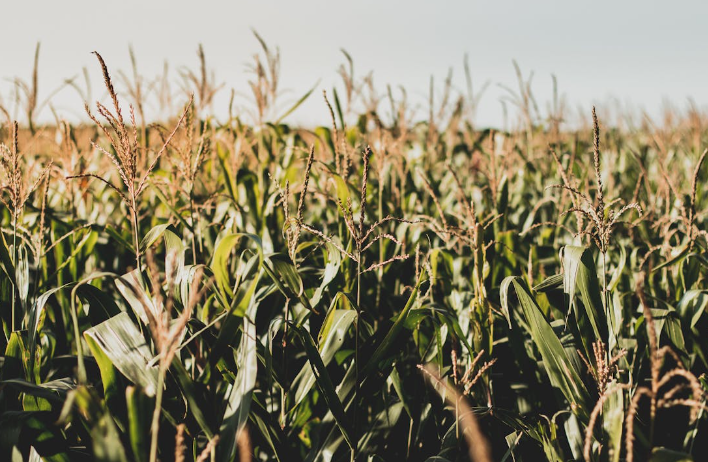Farmers urged to balance use of organic, inorganic fertilisers to boost yields

Kenyan farmers are being encouraged to balance the use of both organic and inorganic fertilisers as experts raise the alarm over the long-term risks of over-reliance on chemical inputs.
While fertilisers have played a critical role in boosting crop yields, their excessive and unchecked use is beginning to show adverse effects on soil health, threatening future productivity and food security.
Soil degradation is becoming an increasingly urgent concern, with experts pointing out that constant application of inorganic fertilisers depletes essential nutrients and disrupts the natural balance of the soil. This decline in soil vitality not only compromises harvests but also poses a broader risk to the country’s agricultural resilience.
Rashid Khator, secretary of administration in the Ministry of Agriculture, called for a shift in how farmers treat the soil.
Representing the Principal Secretary during the launch of the Soil Hub—a programme under the Intergovernmental Authority on Development (IGAD) aimed at promoting sustainable soil practices, Khator stressed that while government-subsidised fertilisers introduced nearly three years ago have improved yields, their widespread use without proper oversight could backfire. He noted that many farmers, motivated by short-term gains, have adopted chemical fertilisers as a primary solution, often without understanding the long-term consequences.
The result, he warned, is a growing vulnerability in the country’s food systems unless farmers begin to adopt more balanced and informed soil management practices.
Integrating organic matter, rotating crops, and monitoring soil conditions were highlighted as critical steps toward building a healthier, more sustainable agricultural future.
Considering this, Khator spotlighted the need to integrate both organic and inorganic fertilisers for mutual effect, in that the soil will be able to get more of organic nutrients, which are also vital for the production of not just significant quantities but quality too.
“While these fertilisers have played a role in boosting productivity, we have also witnessed the unintended consequences of relying on them exclusively. A focus on balanced nutrient management, which combines organic and inorganic fertilisers based on soil testing, is very, very crucial,” he said.
Khator explained that continuous use, and often without accompanying sustainable practices, has led to concerns about soil health degradation, including soil acidification, nutrient imbalances, and a decline in beneficial soil organisms.
This, according to him, poses significant threats to the security of the food systems, not only to the country but to other IGAD member countries that are applying the same tactics in efforts to address the food crisis.
“We recognise that true agricultural sustainability demands a more integrated approach, one that encompasses the biological and physical dimensions of soil health alongside its chemical properties,” he explained.
This comes at a time when the country has recorded an impressive performance in its roadmap towards attaining food security following the diversion of attention by the Kenya Kwanza government.
As part of the Bottom-up Economic Transformation Agenda (BETA), the government envisions having agriculture as the key driver of the economy, hence the reallocation of more resources, including the supply of subsidised fertilisers to farmers.
According to a report by the Kenya National Bureau of Statistics, agriculture was one of the key sectors that cushioned the economy during the fourth quarter of 2024, contributing 4.2 per cent, although a slight contraction from the previous 5.1 per cent to the Gross Domestic Product (GDP) while other sectors recorded significant contractions.
According to Sylvia Henga, a policy and food security Expert from IGAD, the effects that emanate from the excessive use goes beyond just food security, as it impacts the general performance of the economy especially when the citizens consume poor quality food leading to malnutrition.
“When people lack access to sufficient and nutritious food, their physical and cognitive development is impaired, limiting their ability to contribute to the economy,” she said.
Consequently, Khator warns that countries are forced to spend scarce foreign exchange reserves on food imports, imparting funds from other critical investments in areas such as education, health, and infrastructure.
According to the Authority, the region imports roughly 50 per cent of agricultural staple food commodities and products such as rice, wheat, and edible oils, which could be produced within the region.
“Ultimately, poor soil health can trap communities in poverty in unending cycle of poverty, limiting their ability to participate in the economy, escape the cycle of deprivation, and contribute to growth,” he stated.
To help avert the looming crisis, Henga noted that they will be working with different experts, and researchers from both the national level to the smallholder farmer level on the application of the right fertilizer components on the specific food items for proper yields.
“So, we will be bridging research, helping to bridge research and the farmer, so that also these farmers are able to actually benefit from these existing technologies. Because one of the challenges, like, if you look at our existing soil maps, they were drawn from very old-fashioned technology,” she explained.
As part of the efforts to help adopt the strategies, (IGAD) is planning to invest close to Sh 2 billion which will also be used in training of local communities on the integration of the safe practices and learning of the effective production processes
The funds are set to be raised from stakeholders and development partners collaborative efforts with an aim of facilitating the adoption of sustainable soil practices at the grass roots levels.
“We are hoping to raise this money through a series of roundtables, talking to various partners and working around it to be able to get as much as possible. So that will depend on what we get and how we’ll be able to run this process,” she said.
With these measures in place, the effects of low food production, which in many cases is presented by unreliable rainfall and poor soil quality will be addressed.
The government representative also emphasized on creating an enabling policy environment for increasing access to agricultural imports such as fertilizers in order to increase agricultural production and reduce the dependency on imports from outside the region.















